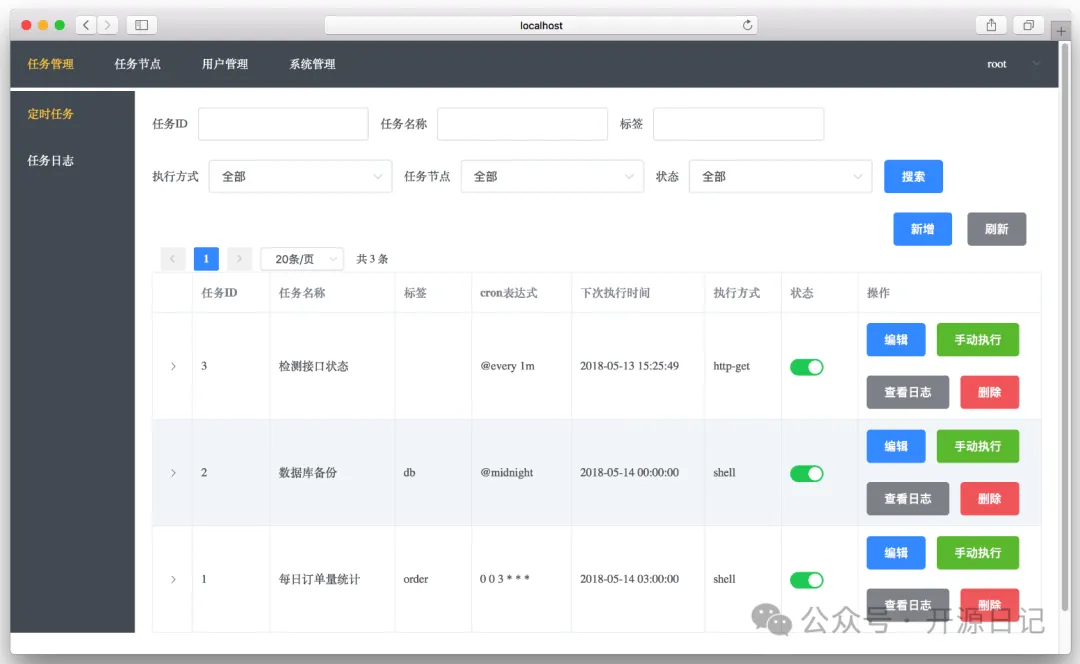本文实例讲述了PHP实现基于PDO扩展连接PostgreSQL对象关系数据库的方法。分享给大家供大家参考,具体如下:
$pdo = NULL;
if(version_compare(PHP_VERSION, \'5.3.6\', \'<\')){
$pdo = new \\PDO(\'pgsql:host=127.0.0.1;port=5432;dbname=postgredb1\',\'postgres\',\"123456\",array(\\PDO::MYSQL_ATTR_INIT_COMMAND=>\'SET NAMES \\\'UTF8\'\' ));
}
else{
$pdo = new \\PDO(\'pgsql:host=127.0.0.1;port=5432;dbname=postgredb1\',\'postgres\',\"123456\");
}
try {
$pdo->beginTransaction();
$tableName = \'user\';
if($fetch = true){
$myPDOStatement = $pdo->prepare(\"SELECT * FROM \" . $tableName . \" WHERE id=:id \");
if(!$myPDOStatement) {
$errorInfo = $myPDOStatement->errorInfo();
throw new \\Exception($errorInfo[0].\'###\'.$errorInfo[1].\'###\'.$errorInfo[2]);
}
$id = 1;
$myPDOStatement->bindParam(\":id\",$id);
$myPDOStatement->execute();
if($myPDOStatement->errorCode()>0){
$errorInfo = $myPDOStatement->errorInfo();
throw new \\Exception($errorInfo[0].\'###\'.$errorInfo[1].\'###\'.$errorInfo[2]);
}
$item = $myPDOStatement->fetch();
print_r($item);
}
$insertedId = 0;
if($insert = true){
$myPDOStatement = $pdo->prepare(\"INSERT INTO \" . $tableName . \"(username,password,status) VALUES(:username,:password,:status)\");
if(!$myPDOStatement) {
$errorInfo = $myPDOStatement->errorInfo();
throw new \\Exception($errorInfo[0].\'###\'.$errorInfo[1].\'###\'.$errorInfo[2]);
}
$timestamp = time();
$data = array(
\'username\' =>\'usernamex\',
\'password\' =>\'passwordx\',
\'status\' =>\'1\',
);
$myPDOStatement->bindParam(\":username\",$data[\'username\']);
$myPDOStatement->bindParam(\":password\",$data[\'password\']);
$myPDOStatement->bindParam(\":status\",$data[\'status\']);
$myPDOStatement->execute();
if($myPDOStatement->errorCode()>0){
$errorInfo = $myPDOStatement->errorInfo();
throw new \\Exception($errorInfo[0].\'###\'.$errorInfo[1].\'###\'.$errorInfo[2]);
}
$affectRowCount = $myPDOStatement->rowCount();
if($affectRowCount>0){
$insertedId = $pdo->lastInsertId();
}
print_r(\'$insertedId = \'.$insertedId);//PostgreSQL不支持
print_r(\'$affectRowCount = \'.$affectRowCount);
}
if($update = true){
$myPDOStatement = $pdo->prepare(\"UPDATE \" . $tableName . \" SET username=:username, status=:status WHERE id=:id\");
if(!$myPDOStatement) {
$errorInfo = $myPDOStatement->errorInfo();
throw new \\Exception($errorInfo[0].\'###\'.$errorInfo[1].\'###\'.$errorInfo[2]);
}
$id = 1;
$username = \'username update\';
$status = 0;
$myPDOStatement->bindParam(\":id\",$id);
$myPDOStatement->bindParam(\":username\",$username);
$myPDOStatement->bindParam(\":status\",$status);
$myPDOStatement->execute();
if($myPDOStatement->errorCode()>0){
$errorInfo = $myPDOStatement->errorInfo();
throw new \\Exception($errorInfo[0].\'###\'.$errorInfo[1].\'###\'.$errorInfo[2]);
}
$affectRowCount = $myPDOStatement->rowCount();
print_r(\'$affectRowCount = \'.$affectRowCount);
}
if($fetchAll = true){
$myPDOStatement = $pdo->prepare(\"SELECT * FROM \" . $tableName .\" WHERE id > :id\");
if(!$myPDOStatement) {
$errorInfo = $myPDOStatement->errorInfo();
throw new \\Exception($errorInfo[0].\'###\'.$errorInfo[1].\'###\'.$errorInfo[2]);
}
$id = 0;
$myPDOStatement->bindParam(\":id\",$id);
$myPDOStatement->execute();
if($myPDOStatement->errorCode()>0){
$errorInfo = $myPDOStatement->errorInfo();
throw new \\Exception($errorInfo[0].\'###\'.$errorInfo[1].\'###\'.$errorInfo[2]);
}
$list = $myPDOStatement->fetchAll();
print_r($list);
}
if($update = true){
$myPDOStatement = $pdo->prepare(\"DELETE FROM \" . $tableName . \" WHERE id=:id\");
if(!$myPDOStatement) {
$errorInfo = $myPDOStatement->errorInfo();
throw new \\Exception($errorInfo[0].\'###\'.$errorInfo[1].\'###\'.$errorInfo[2]);
}
//$insertedId = 10;
$myPDOStatement->bindParam(\":id\",$insertedId);
$myPDOStatement->execute();
if($myPDOStatement->errorCode()>0){
$errorInfo = $myPDOStatement->errorInfo();
throw new \\Exception($errorInfo[0].\'###\'.$errorInfo[1].\'###\'.$errorInfo[2]);
}
$affectRowCount = $myPDOStatement->rowCount();
print_r(\'$affectRowCount = \'.$affectRowCount);
}
$pdo->commit();
} catch (\\Exception $e) {
$pdo->rollBack();
// print_r($e);
}
$pdo = null;
更多关于PHP相关内容感兴趣的读者可查看本站专题:《PHP基于pdo操作数据库技巧总结》、《php+Oracle数据库程序设计技巧总结》、《PHP+MongoDB数据库操作技巧大全》、《php面向对象程序设计入门教程》、《php字符串(string)用法总结》、《php+mysql数据库操作入门教程》及《php常见数据库操作技巧汇总》
希望本文所述对大家PHP程序设计有所帮助。
© 版权声明
THE END










暂无评论内容